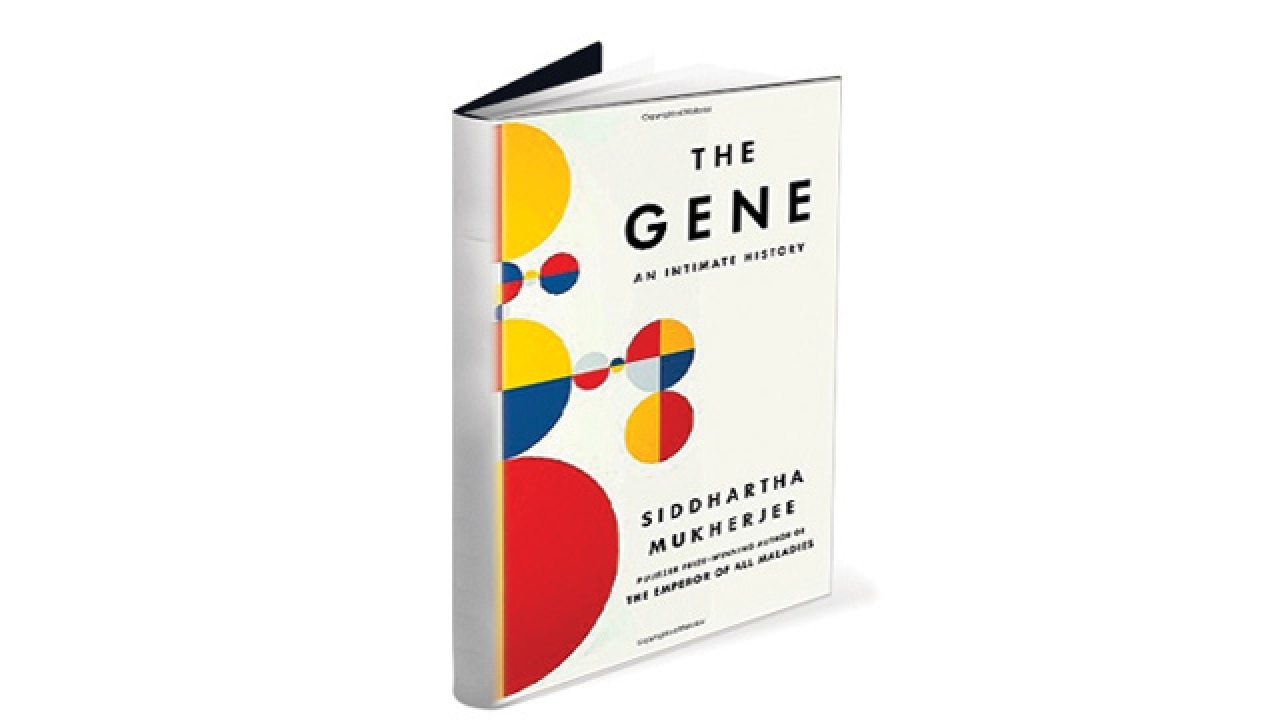
The Gene is yet another humdinger of a book by Siddhartha Mukherjee. It has the heft — both literal and metaphorical — of its predecessor, the Pulitzer Prize-winning The Emperor of All Maladies: A Biography of Cancer, published six years ago, reaffirming the formidable reputation its author has acquired since among general readers and hoity-toity reviewers alike. Its historical scope is as sweeping, the range of scholarship as wide and deep, and Mukherjee's writing as pellucid. At 593 pages, The Gene also is of the same thickness as The Emperor of All Maladies: A Biography of Cancer. If some readers find The Gene a little less intense than the earlier book, that may only be because cancer, its subject, has such a powerful emotional hold over the popular imagination.
As with the book on cancer, the roots of the The Gene lie in disturbing personal experience — Mukherjee's own family history of schizophrenia, bi-polar disorder and related psychoses, which, as a 2009 study conclusively proved, are genetically transmitted; and his resulting anxieties about whether and how it would affect him or his offspring. This personal narrative not just frames the book, but also gives readers a relate-able reference point — the concept of heredity — helping them stick with this book which is, especially in the latter bits when Mukherjee describes complicated genetic therapies being developed in laboratories around the world now, pretty abstract and technical.
Mukherjee is at his best when telling stories, especially in bringing to life men obscured by the veil of time. He does this most movingly with Gregor Johann Mendel, the Augustinian monk considered the father of modern genetics. Mendel's name is familiar, but that's about as much as most of us know about this Augustinian abbot who made the first breakthrough in our knowledge of genes with his painstaking experiments with the pea plant in a small patch of land in the garden at the St Thomas Abbey in Brno, Czech Republic.
Mendel, in Mukherjee's description, is an unlikely innovator — born to peasants in central Europe, he failed the natural science examination on two attempts to teach in high school. He seemed to have worked entirely alone, without the benefit of powerful mentors, a community of like-minded scientists he could talk to, or even any assistant. And yet, he plodded on for more than a decade analysing, single-handedly, at the height of his experiment, some "twenty-eight thousand plants, forty thousand flowers, and nearly four hundred thousand seeds"! Not surprisingly, his paper, presented and published by the little-known Brno Natural Science Society in 1865, lay forgotten for 35 years. Mendel, who died in 1880, wrote several times to a well known Swiss plant physiologist about his discovery, but the latter refused to take him seriously.
It's details like these, the fruit undoubtedly of prodigious research, that gives Mukherjee's narrative, which is packed with people, ideas and happenings, so absorbing.
The history of science is, in essence, a history of the ideas that men, starting from the earliest times, came up with to account for the way nature was formed and functioned. What we know about genes, or cancer, today is the synthesis of incremental breakthroughs by many — some of which later turned out to be mis-turns or dead-ends. Mukherjee is particularly good at unravelling the tortuous path of scientific knowledge and ideas. He gives his due to Francis Galton, the Englishman who coined the term Eugenics, which took a macabre form with the Nazis in 1940s Germany, as well as other forgotten figures like TG Dobzhansky who synthesised genetics with Charles Darwin's theory of evolution, Paul Berg who invented the gene-splicing technique, and consequently, the discipline of genetic engineering; and Victor McKusick, who first suggested that the human genome be mapped in order to study congenital diseases.
Most of us tend to think of science as hermetically sealed, an ivory tower sphere of knowledge isolated from the pulls and pressures of politics, fashion, money, and so on. It's educative, thus, to read in The Gene just how vulnerable science, in this case the disinterested inquiry into heredity and genes, was, and remains, to our ideas about race, sexuality, identity or its connections with power. Eugenics, may be a discredited belief today but, as Mukherjee writes, the new technologies of gene engineering are making more fundamental changes, altering forever our conception of what it means to be "human".